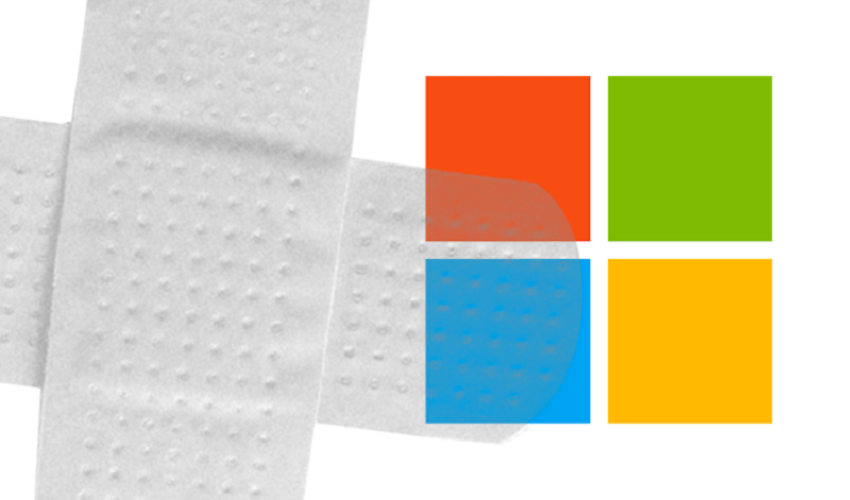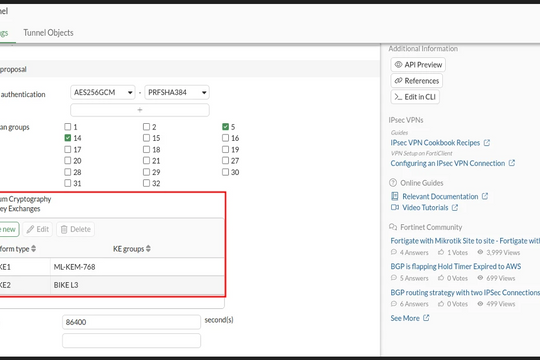Vào ngày thứ ba tuần thứ 2 của tháng, Microsoft thường lệ phát hành bản cập nhật bảo mật hàng tháng được gọi là Patch Tuesday.

Theo Patch Tuesday tháng 8, Microsoft đã vá 93 lỗ hổng bảo mật và đưa ra hai khuyến nghị bảo mật để giảm thiểu hai vấn đề liên quan đến bảo mật mà ảnh hưởng tới các sản phẩm và dịch vụ của Microsoft.
Không giống như những tháng trước, không có lỗ hổng nào được vá đang bị tấn công, hoặc có thông tin chi tiết được công khai trực tuyến.
Lỗi bảo mật thực thi mã từ xa RDS
Trong khi các nhà nghiên cứu bảo mật nói rằng tất cả các lỗi bảo mật đều hệ trọng, thì "các ngôi sao" của Patch Tuesday của tháng này là 4 lỗi thực thi mã từ xa (remote code execution – RCE) mà Microsoft đã sửa trong thành phần Windows Remote Desktop Services (RDS) - CVE-2019-1181, CVE- 2019-1182, CVE-2019-1222 và CVE-2019-1226. Trong bốn lỗi, hai lỗi đầu tiên là những mối đe dọa lớn nhất.
Trong một bài đăng trên blog, Simon Pope, Giám đốc ứng phó sự cố thuộc Trung tâm ứng phó bảo mật của Microsoft (MSRC), cho biết hai lỗi này là "sâu máy tính" (worm), giống như lỗi BlueKeep (CVE-2019-0708) nổi tiếng mà Microsoft đã vá RDS vào tháng 5. Điều này có nghĩa là những kẻ tấn công có thể khai thác các lỗi để chiếm lấy một máy tính và sau đó lây lan sang các máy tính khác mà không có bất kỳ sự can thiệp của người dùng. Bởi vậy, việc vá lỗ hổng CVE-2019-1181 và CVE-2019-1182 là hết sức cấp bách.
Các lỗ hổng khác được vá
Bốn lỗi thực thi mã từ xa RDS không phải là lỗi RCE duy nhất được vá trong tháng này.
Ngoài ra còn có 7 lỗi thực thi mã từ xa tác động đến công cụ tạo kịch bản Chakra (bao gồm trong Microsoft Edge và các ứng dụng khác của Microsoft), 2 lỗi thực thi mã từ xa trong công nghệ ảo hóa máy ảo Microsoft Hyper-V, 6 lỗi thực thi mã từ xa trong thành phần Microsoft Graphics, 1 trong Outlook, 2 trong Word, 2 trong máy khách Windows DHCP, 2 trong thành phần Scripting Engine cũ và một trong công cụ VBScript.
Còn có một bản vá cho một lỗi trong giao thức CTF (Capture the Flag) ảnh hưởng đến tất cả các phiên bản Windows kể từ Windows XP.
Patch Tuesday tháng 8/2019 là một báo cáo dày và quan trọng. Trong số 93 lỗ hổng mà Microsoft vừa vá có 29 lỗ hổng được xếp mức độ Nghiêm trọng và 64 lỗ hổng được xếp mức độ Hệ trọng.
Hơn nữa, trong báo cáo này, Microsoft cũng muốn nhắc nhở người dùng rằng Windows 7 và Windows Server 2008 R2 sẽ không còn hỗ trợ mở rộng và không còn nhận được các bản cập nhật kể từ ngày 14/1/2020.
"Chúng tôi hết sức khuyến nghị bạn nên cập nhật bất kỳ máy tính nào chạy Windows 7 hoặc Windows Server 2008 R2 để bạn sẽ tiếp tục nhận được các bản cập nhật bảo mật", Microsoft thông báo.
Các cập nhật an ninh khác không thuộc về Microsoft
Việc công bố báo cáo vá lỗ hổng Patch Tuesday vào ngày Thứ Ba cũng là ngày mà các nhà cung cấp khác phát hành các bản vá bảo mật, điều đáng nói là Adobe, SAP và VMWare cũng đã xuất bản các bản cập nhật bảo mật tương ứng của họ trước đó vào ngày Thứ Ba.
Trong số các báo cáo của ba công ty, các bản cập nhật bảo mật của Adobe là lớn nhất, với các bản sửa lỗi cho Photoshop, Experience Manager, Acrobat/Reader, ứng dụng máy tính để bàn Creative Cloud, Prelude, Premiere Pro, Character Animator và After Effects. Đáng chú ý, không có bản cập nhật bảo mật Flash trong tháng này.
Thông tin chi tiết hơn về các bản cập nhật Patch Tuesday có sẵn trên cổng thông tin Hướng dẫn cập nhật bảo mật chính thức của Microsoft.
Dưới đây là chi tiết danh sách 93 lỗ hổng được vá trong tháng 8/2019:
Tag | CVE ID | CVE Title |
Online Services | ADV190014 | Microsoft Live Accounts Elevation of Privilege Vulnerability |
Active Directory | ADV190023 | Microsoft Guidance for Enabling LDAP Channel Binding and LDAP Signing |
HTTP/2 | CVE-2019-9513 | HTTP/2 Server Denial of Service Vulnerability |
HTTP/2 | CVE-2019-9512 | HTTP/2 Server Denial of Service Vulnerability |
HTTP/2 | CVE-2019-9511 | HTTP/2 Server Denial of Service Vulnerability |
HTTP/2 | CVE-2019-9518 | HTTP/2 Server Denial of Service Vulnerability |
HTTP/2 | CVE-2019-9514 | HTTP/2 Server Denial of Service Vulnerability |
Microsoft Bluetooth Driver | CVE-2019-9506 | Encryption Key Negotiation of Bluetooth Vulnerability |
Microsoft Browsers | CVE-2019-1193 | Microsoft Browser Memory Corruption Vulnerability |
Microsoft Browsers | CVE-2019-1192 | Microsoft Browsers Security Feature Bypass Vulnerability |
Microsoft Dynamics | CVE-2019-1229 | Dynamics On-Premise Elevation of Privilege Vulnerability |
Microsoft Edge | CVE-2019-1030 | Microsoft Edge Information Disclosure Vulnerability |
Microsoft Graphics Component | CVE-2019-1154 | Windows Graphics Component Information Disclosure Vulnerability |
Microsoft Graphics Component | CVE-2019-1143 | Windows Graphics Component Information Disclosure Vulnerability |
Microsoft Graphics Component | CVE-2019-1144 | Microsoft Graphics Remote Code Execution Vulnerability |
Microsoft Graphics Component | CVE-2019-1152 | Microsoft Graphics Remote Code Execution Vulnerability |
Microsoft Graphics Component | CVE-2019-1078 | Microsoft Graphics Component Information Disclosure Vulnerability |
Microsoft Graphics Component | CVE-2019-1158 | Windows Graphics Component Information Disclosure Vulnerability |
Microsoft Graphics Component | CVE-2019-1150 | Microsoft Graphics Remote Code Execution Vulnerability |
Microsoft Graphics Component | CVE-2019-1151 | Microsoft Graphics Remote Code Execution Vulnerability |
Microsoft Graphics Component | CVE-2019-1153 | Microsoft Graphics Component Information Disclosure Vulnerability |
Microsoft Graphics Component | CVE-2019-1145 | Microsoft Graphics Remote Code Execution Vulnerability |
Microsoft Graphics Component | CVE-2019-1148 | Microsoft Graphics Component Information Disclosure Vulnerability |
Microsoft Graphics Component | CVE-2019-1149 | Microsoft Graphics Remote Code Execution Vulnerability |
Microsoft JET Database Engine | CVE-2019-1155 | Jet Database Engine Remote Code Execution Vulnerability |
Microsoft JET Database Engine | CVE-2019-1146 | Jet Database Engine Remote Code Execution Vulnerability |
Microsoft JET Database Engine | CVE-2019-1147 | Jet Database Engine Remote Code Execution Vulnerability |
Microsoft JET Database Engine | CVE-2019-1156 | Jet Database Engine Remote Code Execution Vulnerability |
Microsoft JET Database Engine | CVE-2019-1157 | Jet Database Engine Remote Code Execution Vulnerability |
Microsoft Malware Protection Engine | CVE-2019-1161 | Microsoft Defender Elevation of Privilege Vulnerability |
Microsoft NTFS | CVE-2019-1170 | Windows NTFS Elevation of Privilege Vulnerability |
Microsoft Office | CVE-2019-1201 | Microsoft Word Remote Code Execution Vulnerability |
Microsoft Office | CVE-2019-1200 | Microsoft Outlook Remote Code Execution Vulnerability |
Microsoft Office | CVE-2019-1199 | Microsoft Outlook Memory Corruption Vulnerability |
Microsoft Office | CVE-2019-1205 | Microsoft Word Remote Code Execution Vulnerability |
Microsoft Office | CVE-2019-1218 | Outlook iOS Spoofing Vulnerability |
Microsoft Office | CVE-2019-1204 | Microsoft Outlook Elevation of Privilege Vulnerability |
Microsoft Office SharePoint | CVE-2019-1202 | Microsoft SharePoint Information Disclosure Vulnerability |
Microsoft Office SharePoint | CVE-2019-1203 | Microsoft Office SharePoint XSS Vulnerability |
Microsoft Scripting Engine | CVE-2019-1133 | Scripting Engine Memory Corruption Vulnerability |
Microsoft Scripting Engine | CVE-2019-1141 | Chakra Scripting Engine Memory Corruption Vulnerability |
Microsoft Scripting Engine | CVE-2019-1131 | Chakra Scripting Engine Memory Corruption Vulnerability |
Microsoft Scripting Engine | CVE-2019-1196 | Chakra Scripting Engine Memory Corruption Vulnerability |
Microsoft Scripting Engine | CVE-2019-1197 | Chakra Scripting Engine Memory Corruption Vulnerability |
Microsoft Scripting Engine | CVE-2019-1140 | Chakra Scripting Engine Memory Corruption Vulnerability |
Microsoft Scripting Engine | CVE-2019-1139 | Chakra Scripting Engine Memory Corruption Vulnerability |
Microsoft Scripting Engine | CVE-2019-1194 | Scripting Engine Memory Corruption Vulnerability |
Microsoft Scripting Engine | CVE-2019-1195 | Chakra Scripting Engine Memory Corruption Vulnerability |
Microsoft Windows | CVE-2019-1163 | Windows File Signature Security Feature Bypass Vulnerability |
Microsoft Windows | CVE-2019-1162 | Windows ALPC Elevation of Privilege Vulnerability |
Microsoft Windows | CVE-2019-1188 | LNK Remote Code Execution Vulnerability |
Microsoft Windows | CVE-2019-1198 | Microsoft Windows Elevation of Privilege Vulnerability |
Microsoft Windows | CVE-2019-1177 | Windows Elevation of Privilege Vulnerability |
Microsoft Windows | CVE-2019-1186 | Windows Elevation of Privilege Vulnerability |
Microsoft Windows | CVE-2019-1168 | Microsoft Windows p2pimsvc Elevation of Privilege Vulnerability |
Microsoft Windows | CVE-2019-1176 | DirectX Elevation of Privilege Vulnerability |
Microsoft Windows | CVE-2019-1174 | Windows Elevation of Privilege Vulnerability |
Microsoft Windows | CVE-2019-1173 | Windows Elevation of Privilege Vulnerability |
Microsoft Windows | CVE-2019-1175 | Windows Elevation of Privilege Vulnerability |
Microsoft Windows | CVE-2019-1179 | Windows Elevation of Privilege Vulnerability |
Microsoft Windows | CVE-2019-1180 | Windows Elevation of Privilege Vulnerability |
Microsoft Windows | CVE-2019-1178 | Windows Elevation of Privilege Vulnerability |
Microsoft Windows | CVE-2019-1172 | Windows Information Disclosure Vulnerability |
Microsoft Windows | CVE-2019-0716 | Windows Denial of Service Vulnerability |
Microsoft XML | CVE-2019-1187 | XmlLite Runtime Denial of Service Vulnerability |
Microsoft XML Core Services | CVE-2019-1057 | MS XML Remote Code Execution Vulnerability |
Visual Studio | CVE-2019-1211 | Git for Visual Studio Elevation of Privilege Vulnerability |
Windows - Linux | CVE-2019-1185 | Windows Subsystem for Linux Elevation of Privilege Vulnerability |
Windows DHCP Client | CVE-2019-0736 | Windows DHCP Client Remote Code Execution Vulnerability |
Windows DHCP Server | CVE-2019-1213 | Windows DHCP Server Remote Code Execution Vulnerability |
Windows DHCP Server | CVE-2019-1206 | Windows DHCP Server Denial of Service Vulnerability |
Windows DHCP Server | CVE-2019-1212 | Windows DHCP Server Denial of Service Vulnerability |
Windows Hyper-V | CVE-2019-0718 | Windows Hyper-V Denial of Service Vulnerability |
Windows Hyper-V | CVE-2019-0717 | Windows Hyper-V Denial of Service Vulnerability |
Windows Hyper-V | CVE-2019-0714 | Windows Hyper-V Denial of Service Vulnerability |
Windows Hyper-V | CVE-2019-0715 | Windows Hyper-V Denial of Service Vulnerability |
Windows Hyper-V | CVE-2019-0720 | Hyper-V Remote Code Execution Vulnerability |
Windows Hyper-V | CVE-2019-0965 | Windows Hyper-V Remote Code Execution Vulnerability |
Windows Hyper-V | CVE-2019-0723 | Windows Hyper-V Denial of Service Vulnerability |
Windows Kernel | CVE-2019-1164 | Windows Kernel Elevation of Privilege Vulnerability |
Windows Kernel | CVE-2019-1169 | Win32k Elevation of Privilege Vulnerability |
Windows Kernel | CVE-2019-1227 | Windows Kernel Information Disclosure Vulnerability |
Windows Kernel | CVE-2019-1159 | Windows Kernel Elevation of Privilege Vulnerability |
Windows Kernel | CVE-2019-1228 | Windows Kernel Information Disclosure Vulnerability |
Windows Kernel | CVE-2019-1190 | Windows Image Elevation of Privilege Vulnerability |
Windows RDP | CVE-2019-1181 | Remote Desktop Services Remote Code Execution Vulnerability |
Windows RDP | CVE-2019-1225 | Remote Desktop Protocol Server Information Disclosure Vulnerability |
Windows RDP | CVE-2019-1226 | Remote Desktop Services Remote Code Execution Vulnerability |
Windows RDP | CVE-2019-1223 | Windows Remote Desktop Protocol (RDP) Denial of Service Vulnerability |
Windows RDP | CVE-2019-1224 | Remote Desktop Protocol Server Information Disclosure Vulnerability |
Windows RDP | CVE-2019-1182 | Remote Desktop Services Remote Code Execution Vulnerability |
Windows RDP | CVE-2019-1222 | Remote Desktop Services Remote Code Execution Vulnerability |
Windows Scripting | CVE-2019-1183 | Windows VBScript Engine Remote Code Execution Vulnerability |
Windows Shell | CVE-2019-1184 | Windows Elevation of Privilege Vulnerability |
Windows SymCrypt | CVE-2019-1171 | SymCrypt Information Disclosure Vulnerability |
























